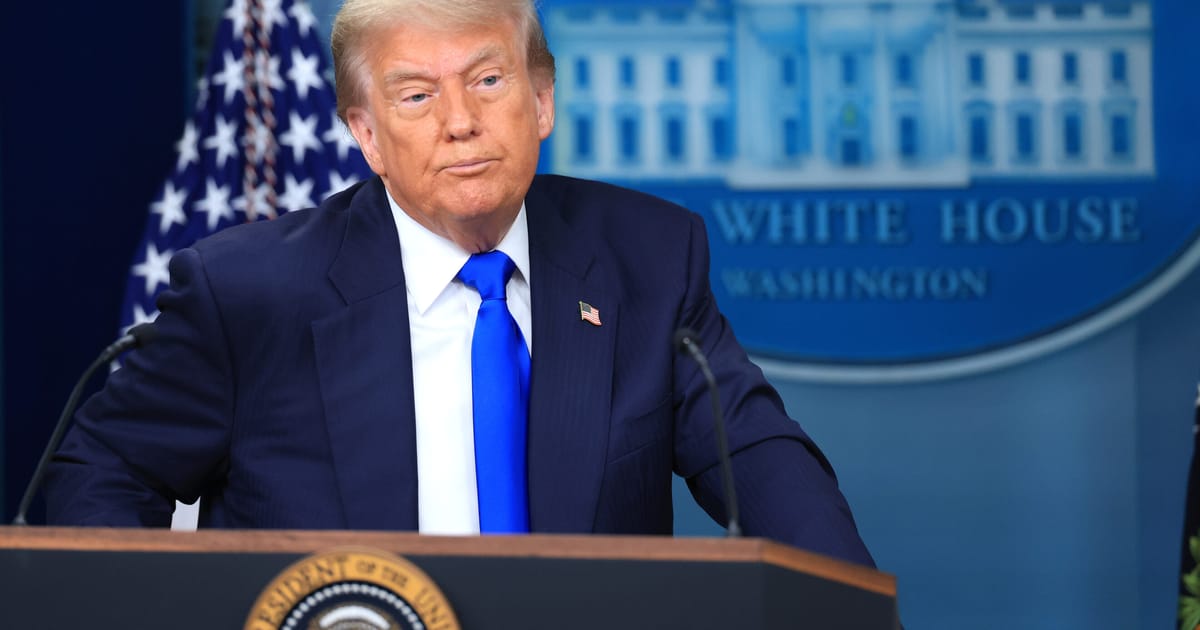

In a recent development that highlights the complexities of global trade, former U.S. President Donald Trump announced a substantial 30% tariff on goods imported from the European Union and Mexico, marking a significant shift in the economic landscape. This decision, which is set to take effect on August 1, has prompted responses from various international stakeholders, seeking to address the implications of this policy change.
In a series of posts on Truth Social, Trump communicated his strategy, indicating that these tariffs aim to address economic pressures and promote domestic interests. The move comes as both the EU and the U.S. have been exploring avenues for a trade agreement, marking a divergence from collaborative efforts toward protectionist measures. Trump’s announcement underscored his administration’s focus on prioritizing American economic interests while acknowledging Mexico’s efforts to address migration and drug trafficking concerns.
Ursula von der Leyen, the EU’s chief executive, responded promptly, asserting that the EU stands ready to take “all necessary steps to safeguard EU interests.” As a significant player in the global economy, the EU’s response is crucial in shaping the subsequent dialogue and action plan. The commitment to protecting economic stability remains at the forefront of the EU’s strategy, as they navigate these new challenges.
Tensions between the U.S. and its trade partners are not new, and the imposition of tariffs is a familiar tactic deployed by the Trump administration during previous terms. The political and economic reasoning behind this decision was clarified by Trump’s allies, who emphasized that further extensions on trade measures are unlikely. This stance signals a more definitive approach in his strategy to bolster national industries, even if it involves a hardline stance with longtime partners.
From a broader economic perspective, the effects of such tariffs extend beyond immediate trade imbalances. According to economic analysts, the impacts may reverberate in various sectors, influencing production, consumer costs, and ultimately, the global supply chain. Nevertheless, there is an ongoing discussion about balancing protectionist policies with the benefits of open trade, particularly amid concerns about rising public deficits in several economies, such as France. Reports have indicated that reductions in obligatory levies since 2017 have contributed to increasing deficits, highlighting the delicate equilibrium required in fiscal governance.
The introduction of this tariff also arrives amid broader economic uncertainties, as countries worldwide are grappling with recovery strategies post-pandemic. The interplay between strategic national policies and cooperative international engagement remains critical. As countries weigh their options, the focus is on finding pathways that promote economic resiliency while accommodating evolving global trade dynamics.
In conclusion, the announcement of new tariffs by Donald Trump represents a pivotal moment in international trade relations, emphasizing the ongoing challenge of balancing national interests with global cooperation. As countries prepare for the economic shifts these tariffs may incur, the dialogue between leaders and economic entities will play a fundamental role in shaping future policies and maintaining economic stability. The next steps taken by the U.S., Europe, and Mexico, along with the response from the wider international community, will be crucial in navigating these intricate global trade pathways calmly and strategically.
Source: {link}
